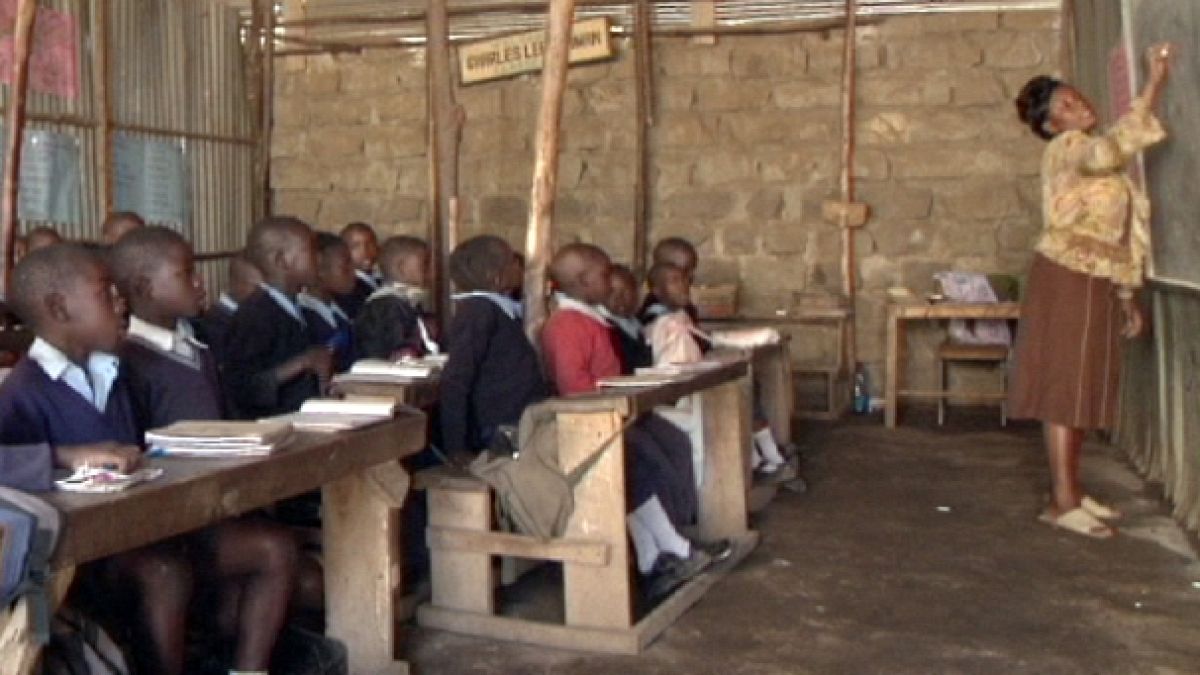Low cost schools are a new educational trend which is making a big impact in developing countries. The growth of these schools shows how fostering economic development can be a matter for private enterprise as well as government institutions.
In Asunción, Paraguay, the privately-financed San Francisco Rural School has become a pioneering model of self sufficiency for the young people living in this poor area.
So many people have moved away from Paraguay’s rural areas, that nowadays nearly 30 percent of the population – that is two million people – live in the capital, Asunción. But for many of them the dream of a better life in the big city has turned sour.
‘Agroshopping’ is the largest organic market in the city. At the market, 17-year-old Maria Antonia sells vegetables picked by her class-mates. She explained: “For us, Agroshopping is an opportunity to sell goods – because we sell whatever we produce to fund our school. We work in order to study. My family can’t afford to pay for me to go to a normal school.”
The San Francisco Rural School is self-financing as a result of a partnership with the Fondation Paraguaya – which specialises in micro financing. A 160 acre-farm, on good land, with appropriate initial investment, can generate enough profit to keep the school running.
The pupils all work on the smallholding, growing vegetables, for around half of the school day. The profits go to finance the infrastructure and running of the school, which prides itself on its academic results.
These children all share the same dream – a solid education. They are proud of their achievements in financing their own school and the experience opens doors in the food industry, in marketing and tourism. Better still, former pupils of the school can, in their turn, get micro-financing from the Fondation Paraguaya to set up their own businesses.
For more information see
Low cost schools are vital in developing countries where state education is often either non-existent or too expensive for most people. Professor James Tooley has been working in Ghana and India, helping low-cost private schools in poor areas to raise education standards and get access to loan schemes to invest.
He said: “What you’re now finding – in the slums, in the shantytowns in many African countries, India, and elsewhere – is that the poor are not acquiescing in the mediocrity of state education. They are sending their children to private schools that are set up by entrepreneurs in the slums themselves. They may be charged the equivalent of $2, $3, or $4 per month, and they are serving the very poor, they’re outperforming the government schools – our research has shown that – and they’re doing it for a fraction of the cost.
“The entrepreneurs are typically, I think, of three types. One could have been a mother, typically a young woman who has her own children and creates a nursery school around her two or three children, brings in the neighbours. After a couple of years they’re due to go to grade one, and so she starts grade one, and before you know it she’s at grade five, and then up to grade 10. A second sort of school has been founded by typically a young man or a young woman who starts a tuition class, a tutorial class, a ‘cramming’ class if you like, for class 10 exam students. And they would come to him or her and say ‘Actually we’re learning a lot more from you than we are from school, why don’t we come to you full time,’ and then he starts going down from 10, 9, 8, and before you know it there’s a school there. And a third type of entrepreneur, would be someone who sees that there’s a market here now. He or she may have done something completely different before, is usually from the community itself, and says ‘Actually a school seems to be a reasonable business to run, I get social standing, I get respect in the community, and I can get a small income.’ So those are typically the types of entrepreneur.”
Another example of this trend comes from Africa. For the underprivileged families living in the slums of Kenya’s capital Nairobi, a good education is the only way to escape the poverty cycle. Fortunately, over the past decade, local entrepreneurs have found ways to provide affordable, high quality education for the poorest people.
Around Nairobi, free state schools are thin on the ground and private schools charge fees which most families cannot afford. But a new type of school has emerged – independently-operated low cost schools. The Kenyan Independent School Association co-ordinates these new private schools and there are now 1,500 of them – serving more than half a million deprived children.
One of these schools is in the Soweto slum area, just seven kms from Nairobi’s bustling central business district. Originally just a kindergarten in a couple of temporary classrooms, it has expanded over the years, and now provides both primary and secondary education in 22 classrooms to 1,200 students.
The primary school charges just 23 euros a term in an area where the average wage is around six euros a day. This covers both tuition and exam fees and is enough to make the school self-sustaining. Best of all, the school achieves good results, especially in the national exams, scoring a grade above the national average.
Videos and pictures courtesy James Toolei
